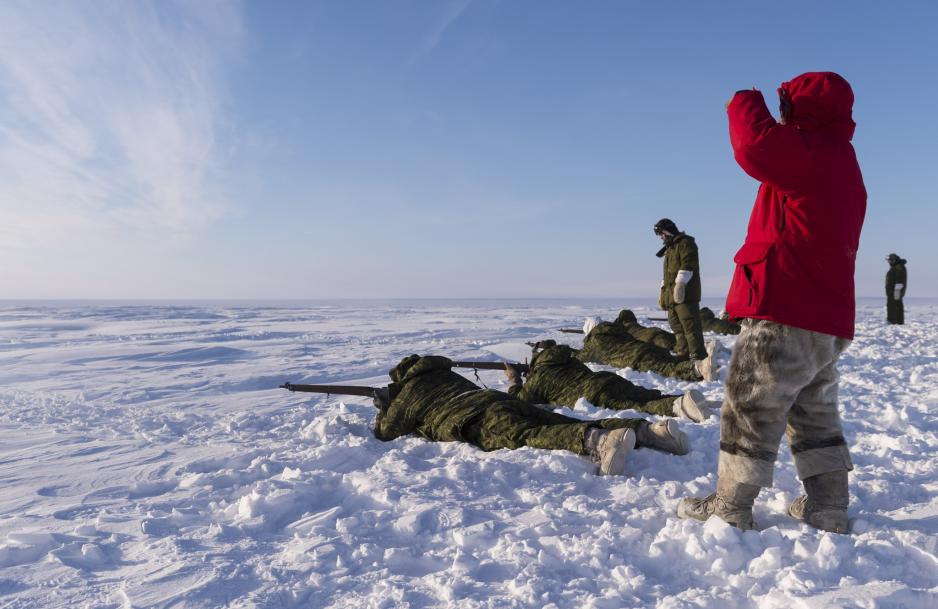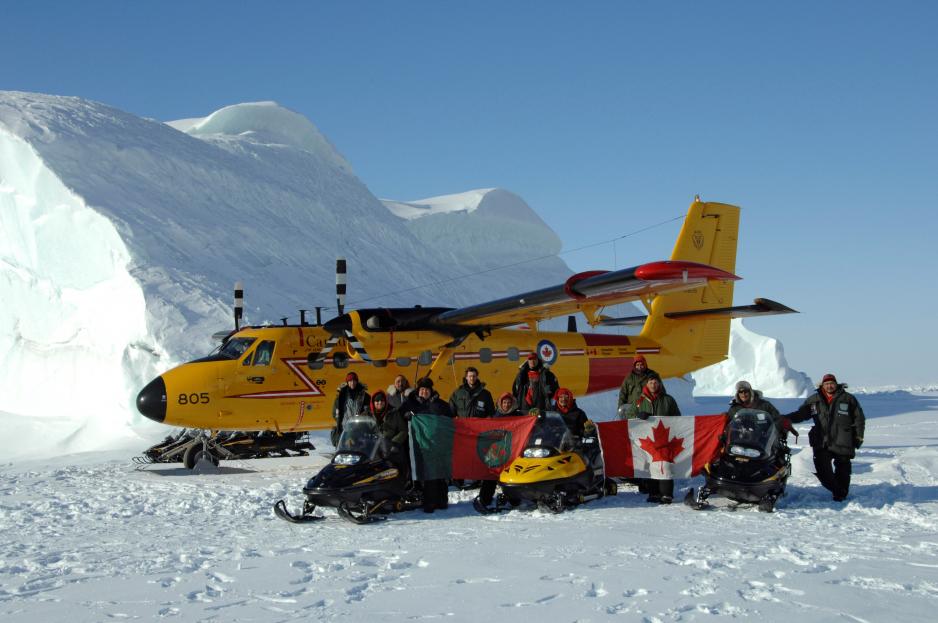Canadian Arctic sovereignty exercise Nunalivut 2018 begins

The Canadian Armed Forces is beginning one of their annual High Arctic sovereignty exercises this week. Nunalivut 2018 will take place around Cambridge Bay and Resolute Bay, Nunavut from February 23-March 19, involving about 300 military personnel and multiple aircraft and land vehicles.
Past exercises have involved air, land, underwater, and sea ice drills with the Canadian Rangers, a lightly armed patrol group based throughout Arctic communities. The drills focus on survival skills and enforcing security measures in the harsh environment and have been conducted every year since 2007.
Sovereignty challenges in the Canadian Arctic
Historically, Canada has emphasized its sovereign claim to its remote and vast High North. With approximately 40% of its landmass in its northern three territories (Northwest Territories, Nunavut, and Yukon), the Canadian Arctic contains 162,000 km of Arctic coastline, over 36,000 islands, but only around 110,000 people, meaning that exercising sovereignty in the form of law enforcement or security operations can present unique challenges. Although there is a history of international contestation over Canada’s sovereign claims in the Arctic, especially over the Northwest Passage, Canada has had a renewed accent on ensuring its Arctic sovereignty in recent years.
The Canadian Department of National Defence (DND) says that because of the implications of the changing Arctic climate, especially ice melt, there has been an increase in human activity in the Canadian Arctic. With less ice to block the waters of Canada’s Arctic archipelago, more ships are able to pass through each year. The number of aircraft flying on polar routes through Canadian airspace has also gone from 1,000 to nearly 10,000 between 2003 and 2010. In addition to this, because it is rich in fossil fuels and mineral deposits such as diamonds, the Arctic is of economic importance to Canada.
For Canada, this means that with each year, there is a higher likelihood of accidents, illegal activity, or environmental contamination in a region that already presents significant logistical challenges. Nunalivut 2018 is not the only exercise that aids in military preparedness in the Arctic: among others, Norex 2018, which just concluded on February 17, also took place in Resolute Bay. However, sovereignty-reinforcing Arctic preparedness drills are also sometimes done with other countries, reflecting the spirit—and necessity—of cooperation in the Arctic: previous Nunalivut exercises have involved Danish and US partners, and this year’s will have international observers.

"Sovereignty begins at home"
A number of aircraft will be used during Nunalivut 2018. According to the DND’s application to the Nunavut Impact Review Board (NIRB), these will include a CC-177 Globemaster, a CC-130 Hercules, a CH-146 Griffon, and three CC-138 Twin Otters. The NIRB’s mandate is to assess the potential environmental and social impact of proposed activities in Nunavut, and in addition to the aircraft, wildlife-impacting noise will be generated by other planned activities like rifle firing exercises and snowmobile patrols. The DND says they will make every effort to reduce impacts as much as possible.
While military presence is important to Canada’s sovereign claim in the Arctic, so is social welfare and environmental stewardship. In the Arctic especially, these go hand in hand. In Nunavut, the majority of its residents are Inuit, and many have close cultural, spiritual, and social ties to the land.
With this relationship in mind, Mary Simon, a prominent Inuk leader in Canada, has said that "sovereignty begins at home" in the Arctic. The Arctic is more than a place for military exercises: it’s also where thousands of people call home, and Canada’s sovereign claim in the region has as much to do with the well-being of its residents as it does with its military capabilities. From efforts to reduce impacts on wildlife to removing waste generated by nearly a month in the Arctic, environmental stewardship during Nunalivut 2018 is as much an act of sovereignty as the exercise itself.
